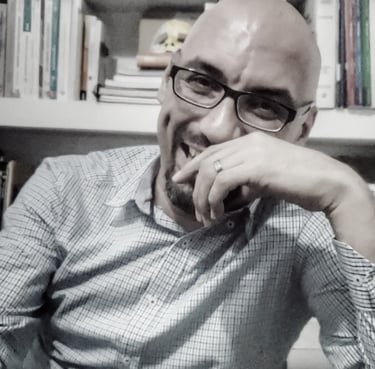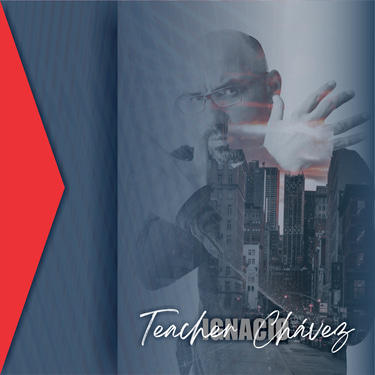The Talent Code – Daniel Coyle (C2 Level)
ULTIMATE READING
Teacher Ignacio Chávez
9/9/20254 min read


The Talent Code by Daniel Coyle takes a deep dive into the nature of talent, arguing that it is neither an innate gift nor something predetermined. Rather, Coyle asserts that talent is developed through targeted, deliberate effort, and that anyone can build extraordinary skills through consistent, well-structured practice. The book explores the neurological and psychological mechanisms that enable talent to emerge, focusing particularly on the roles of deep practice, ignition, and master coaches.
🧠 Deep Practice: The Neuroscience of Skill Acquisition
Coyle introduces the concept of deep practice, a fundamental process for acquiring and refining skills. Deep practice involves engaging in focused, challenging tasks that push you to the edges of your abilities. It’s not about mindless repetition, but about pushing through mistakes, learning from them, and gradually improving. When we engage in deep practice, we create new neural pathways in the brain, which improve our ability to perform complex tasks. This process is neurologically intensive and requires sustained concentration, but it leads to profound improvements over time.
The key is that effortful practice is the most effective. The idea is to stretch your abilities, ensuring that you're constantly working just beyond your current level of competence. This process not only leads to improvement in the skill being practiced, but it also strengthens the brain's wiring, making the task feel easier and more fluid as time progresses.
🗣️ “The essence of mastery lies not in perfection, but in how you embrace and learn from your mistakes.”
⚡ Ignition: The Spark that Fuels Perseverance
Coyle emphasizes that ignition, or the inner fire that drives motivation, is indispensable in the process of talent development. Passion and inspiration serve as the energy that propels you forward, especially during the inevitable frustrations that come with the journey toward mastery. Ignition ignites the desire to work hard, focus deeply, and overcome obstacles. It is about discovering a personal connection to what you're doing—whether it’s a sport, music, or any other endeavor.
This deep sense of purpose turns practice from a mechanical task into an emotional journey. It makes practice enjoyable, rewarding, and ultimately sustainable over time. Passion keeps you engaged even when the process feels tedious, and it ensures that you stay on track when results seem distant.
🗣️ “Find what makes you feel alive, and use that passion to fuel your dedication to mastery.”
Ignition isn’t something that magically happens—it’s cultivated over time, through exposure to inspiring mentors, experiences, and environments. Once you tap into this powerful force, it can drive you toward extraordinary outcomes.
🔑 Master Coaches: The Influence of Expertise
Coyle also delves into the significance of master coaches—those who possess not only technical skill but also the ability to impart that skill in a meaningful way. While self-directed practice is important, expert guidance can accelerate development exponentially. A master coach helps to structure practice, identify areas for growth, and provide feedback that facilitates improvement. Coaches also play a pivotal role in fostering the right mindset, helping individuals embrace challenges and persist through adversity.
Coyle notes that effective coaches aren’t just expert technicians in their field; they are individuals who understand how to inspire, challenge, and nurture talent in others. They know how to create a learning environment that is safe yet demanding, where the student is continually stretched but never overwhelmed.
🗣️ “Great coaches see potential in their students that they themselves might not yet see. They push, support, and know when to step back and let the student discover their own path.”
The relationship between coach and student is symbiotic. Coaches don’t just teach—they catalyze growth by setting high standards and giving the right amount of attention and encouragement.
🏆 Consistency: The Long-Term Commitment
Perhaps the most crucial takeaway from Coyle’s work is the idea that talent is the result of long-term commitment to consistent practice. Talent is not an innate trait, nor is it something that arrives magically with ease. It is developed over time through deliberate, sustained effort. The concept of deliberate practice involves repetitive engagement in tasks that may initially be uncomfortable or difficult, but it’s this very discomfort that leads to growth.
Coyle draws attention to the fact that true mastery is a gradual process. It’s the accumulation of small, consistent improvements, day after day, that eventually leads to extraordinary results. Those who excel in their fields are often not the most naturally gifted, but those who persist the longest, continue refining their skills, and make learning a lifelong commitment.
🗣️ “The road to greatness is a marathon, not a sprint. Every bit of progress compounds to create mastery.”
Persistence in the face of setbacks and challenges is critical. Talent is not something you’re born with—it’s something you build over time, through an unwavering commitment to consistent, intentional practice.
✅ Conclusion: Talent is Built, Not Born
At its core, The Talent Code makes a radical assertion: talent is built, not born. It is a process of growth that unfolds through deliberate practice, ignited by passion, and shaped by expert mentorship. Anyone, regardless of their natural starting point, can develop remarkable skill through consistent, focused efforts.
Coyle’s book reinforces that effort and practice are far more important than raw talent. If you invest in the right kind of practice, find passion in what you do, and seek the guidance of those who have already mastered the skill, you can achieve far more than you ever imagined.
🗣️ “Greatness is not an inherent gift, it’s the result of relentless practice, passion, and perseverance.”
In conclusion, The Talent Code offers a powerful message: no matter where you start, through deep practice, sustained passion, and expert guidance, you can achieve mastery in any area you choose. The process is challenging, but with persistence and the right mindset, anything is possible.
ZOOM CLASSES
ULTIMATE PROGRAM
Tuesday and Wednesday 7:00 PM - 8:30 PM
ULTIMATE PROGRAM
Saturday 8:30 AM - 10:00 AM


